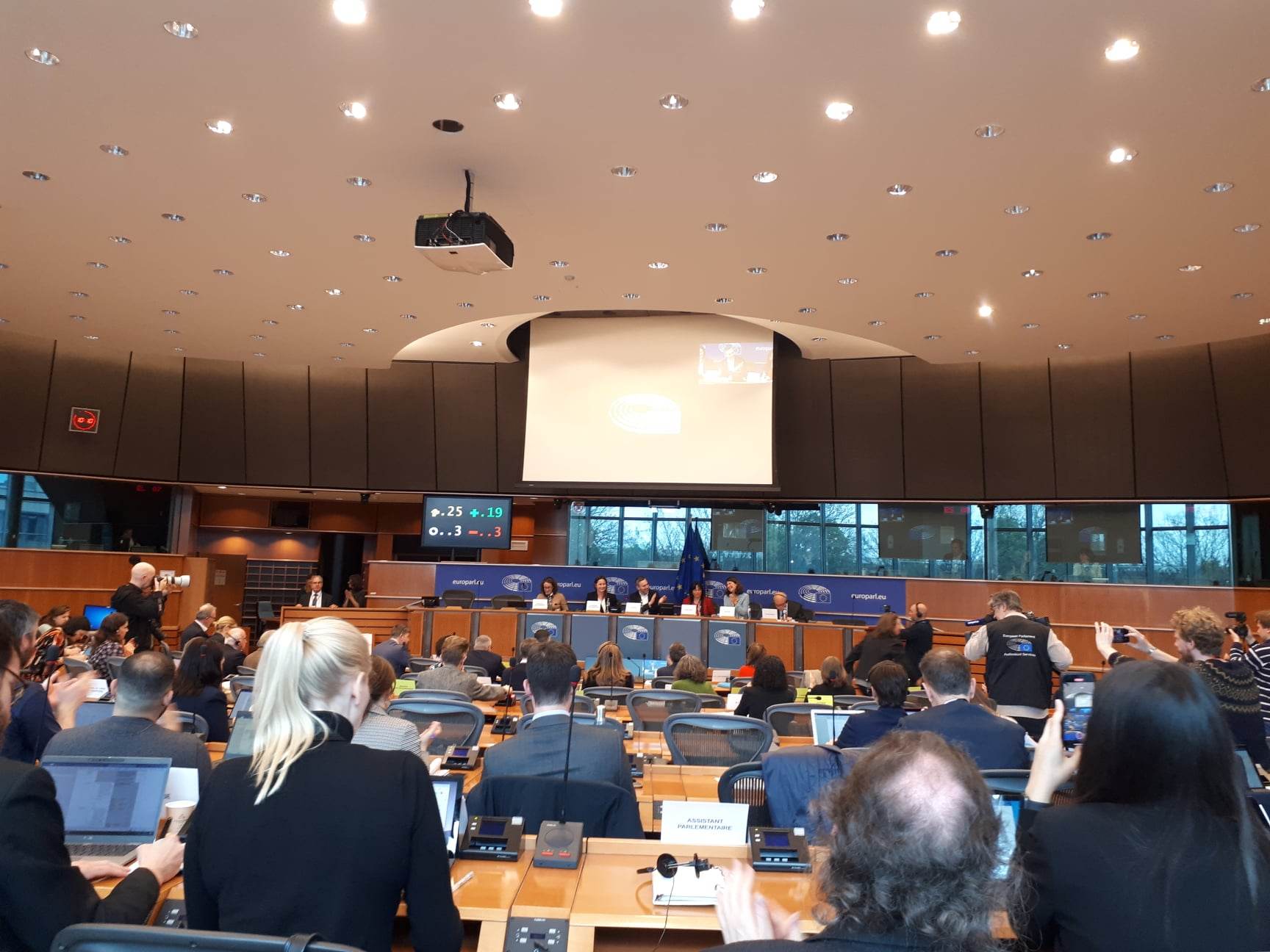Vote in JURI Committee: An important step for the CS3D to improve the livelihoods of smallholders
 Brussels, 25 April 2023 – The committee on Legal Affairs (JURI) of the European Parliament has voted today on their amendments to define the position of the Parliament on the proposed Corporate Sustainability Due Diligence Directive (CSDDD). This directive has the chance to make business more responsible in terms of human rights and the environment. But to avoid unintended negative consequences and that actors with less power in value chains bear most of the burden of due diligence, some crucial elements need to be improved from the Commission’s proposal. The European Parliament has the opportunity to correct the flaws, and even if the approved report is weaker than the original draft report by the rapporteur, MEP Lara Wolters, it is an important step in the right direction.
Brussels, 25 April 2023 – The committee on Legal Affairs (JURI) of the European Parliament has voted today on their amendments to define the position of the Parliament on the proposed Corporate Sustainability Due Diligence Directive (CSDDD). This directive has the chance to make business more responsible in terms of human rights and the environment. But to avoid unintended negative consequences and that actors with less power in value chains bear most of the burden of due diligence, some crucial elements need to be improved from the Commission’s proposal. The European Parliament has the opportunity to correct the flaws, and even if the approved report is weaker than the original draft report by the rapporteur, MEP Lara Wolters, it is an important step in the right direction.
We welcome that the JURI committee’s report introduces significant improvements, with regards to the Commission’s proposed directive and the Council’s general approach from December 2022:
- One of the central improvements is that it stipulates that buying companies must assess the potential or actual adverse impact that their purchasing practices may have on human rights and the environment. For workers and farmers in the textile and agricultural industries, where Unfair Trading Practices (UTPS) are particularly prevalent, this is a significant improvement to the proposed directive.
- The JURI committee also improved the Commission’s proposal by including living income, in addition to living wage, as a human right to be respected. A third of the food that we consume is produced by smallholder farmers who often do not earn enough to afford a decent standard of living for their household nor have the means to pay a living wage to their workers. Valuing the right to living income to the same level as living wage in the CSDDD has the potential to urge companies to look more closely at their purchasing practices and contribute to lift smallholder farmers out of poverty.
- We welcome that the JURI report puts meaningful stakeholder engagement in a central place of the due diligence process, and clarifies that it goes beyond mere consultation. Its objective is to help businesses understand and identify effective ways to respond to affected stakeholders’ needs and concerns. Most importantly, in line with the UN Guiding Principles on Business and Human Rights (UNGPs) and OECD Guidelines, the report highlights that companies should engage in a gender responsive way and pay particular attention to groups that are likely to be the most vulnerable to adverse impacts.
- Last but not least, we welcome that the JURI report expressly states that disengagement should only be used as a last resort and that the potential adverse human rights or environmental impact of disengaging also must be taken into account. Unfortunately, the JURI report limits the responsibility to disengage to instances where the companies either caused or contributed to the harm, which contradicts the logic of responsible disengagement developed in the OECD Guidelines and UNGPs, which state that a company should only disengage if it lacks the leverage to mitigate the adverse impact.
Now it is up to the whole Parliament to show support for this report in plenary. Despite some weak parts, it is a vast improvement over the Commission’s proposal and would give the Parliament a strong mandate of negotiations for the trilogues.
Read the full joint press release here.
Press contact:
Fair Trade Advocacy Office
May Hylander
Policy and Project Officer, hylander@fairtrade-advocacy.org
Rainforest Alliance
Fanny Gauttier
EU Public Affairs Lead, fgauttier@ra.org
Solidaridad
Catarina Vieira
EU Policy Advisor, catarina.vieira@solidaridadnetwork.org
Fairtrade International
Meri Hyrske-Fischer
Human Rights Advisor, meri.hyrske-fischer@fairtrade.fi